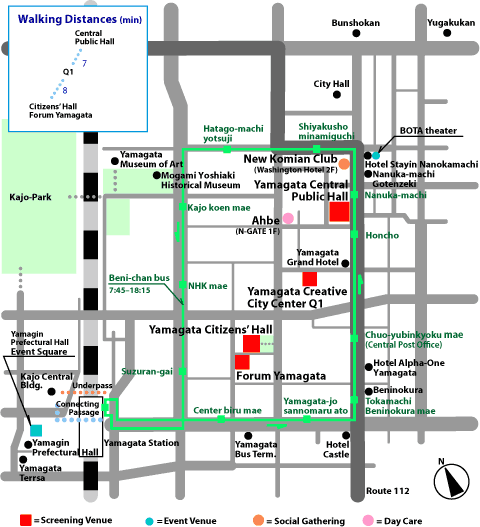YAMAGATA INTERNATIONAL DOCUMENTARY FILM FESTIVAL 2023
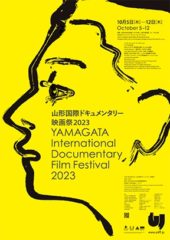
Nonfiction Utopia Finally Returns
Yamagata Kokusai Documentary Eigasai 2023
山形国際ドキュメンタリー映画祭 2023
Multilanguages, almost all with Japanese and English subs
Venue: Multiple locations in Yamagata City | October 5 (Thu) to October 12 (Thu), 2023
Official website:
www.yidff.jp/index.html.en
Theater website:
www.yidff.jp/2023/info/23venues-e.html
Tariff:
Visit the official site for details: http://www.yidff.jp/2023/info/23tickets-e.html
Advance tickets: Visit the official site for details: http://www.yidff.jp/2023/info/23tickets-e.html
Talk event: Visit the official site for details of many talks, Q&A sessions
The 18th biannual Yamagata International Documentary Film Festival (YIDFF), Japan’s first and still only major festival devoted to nonfiction cinema in all its permutations, is kicking off in early October. Unfolding in venues that sprawl across the small town of Yamagata, nestled in the northern Alps, it’s a welcome return for one of the world’s oldest doc fests, which had to suddenly shift its 2021 edition online amid the Covid pandemic.
YIDFF is a don’t-miss event for aficionados and practitioners from around Asia, and is easy to reach by rail or bus from Tokyo — so if you’re a fan of docs, we urge you to make the journey north. Almost all titles in the extensive lineup are screened with English subs, and guests from around the world will be on hand for Q&A sessions, special forums and nightly gatherings at the beloved (relocated) Komian Club.
YIDFF runs from from October 5 to 12, and comprises a vast number of films to choose from. Many of them highlight marginalized voices, narratives and histories of the disenfranchised, alternative and independent visions, and the struggles of documentarians who film against all odds, braving taboos, determined to bring stories of injustice and suffering to light.
There are Japanese films in most of the festival sections, including the International Competition, New Asian Currents and Special Invitation films, and as always, we’re focusing on them here. But you won’t want to miss all the other highlights, so check the superlative English website for the full schedule.
In the International Competition, just 15 titles that the festival terms “richly varied and representing the vanguard of world filmmaking” were selected from among 1,132 entries. As always, the selection was made by a group of “real” people, rather than just festival programmers, including academics, local business owners, Yamagata volunteers, film critics and festival office staff. A jury comprised of filmmaker Oskar Alegria, critic Erika Balsom, artist and filmmaker Chen Chieh-Jen, filmmaker Zhang Lu, and acclaimed Japan-based filmmaker Yang Yonghi will decide the recipients of the International Competition awards, which include The Robert and Frances Flaherty Prize.
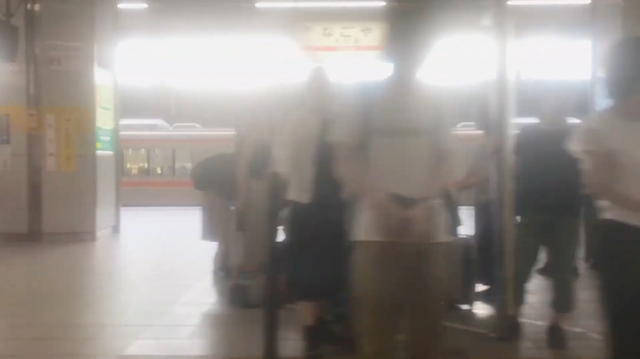 “hibi” AUG
“hibi” AUG
Director: Maeda Shinjiro
Japan / 2022 / 120 min
- The Japanese entry is the oddly titled “hibi” AUG by Shinjiro Maeda. Made over the course of 15 years, the director shot for only 15 seconds a day, for the 31 days of August each year. The locations and subjects vary widely and are beautifully shot. He then edited with disruptive sound effects, playing with and subverting viewer perceptions.
There are two Japanese films in the New Asian Currents section, a lineup of 19 “gems in the rough that boldly carve out new ways of expression.” YIDFF regular Kaori Oda, who studied with Bela Tarr in Sarajevo and screened Aragane, shot in the Bosnian coal mines, at YIDFF 2015, as well as Cenote, a Japan-Mexico coproduction, at YIDFF 2019.
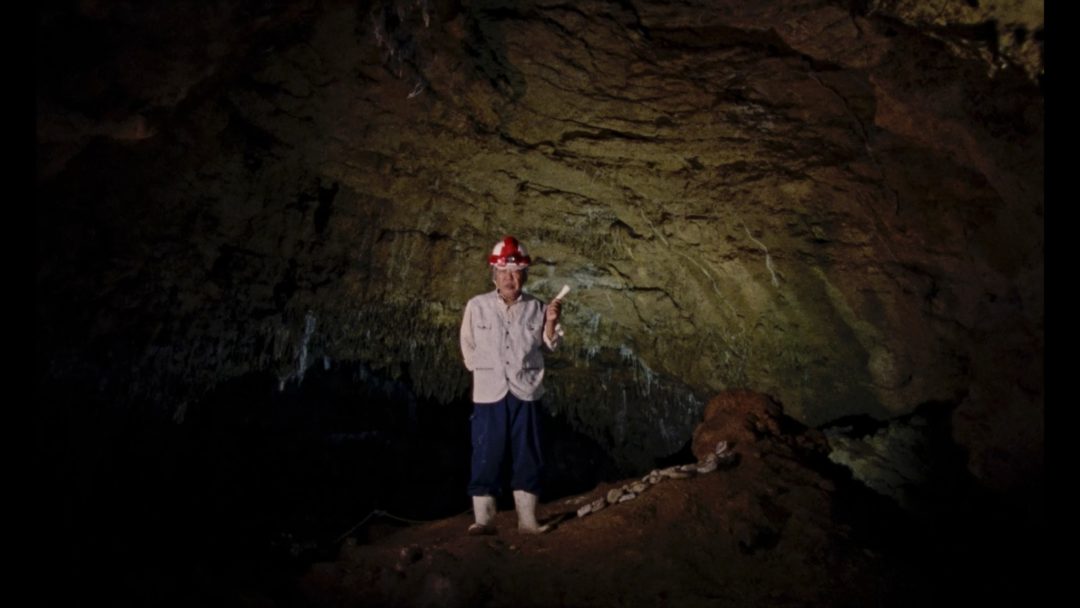 Gama
Gama
Director: Kaori Oda
Japan / 2023 / 53 min
I© 2023 Toyonaka Performing Arts Center / trixta
Her new one, Gama, submerses viewers in yet another remarkable location: the Chibichiri-gama natural cave where 83 locals took their own lives during the Battle of Okinawa in 1945, out of fear of being captured and tortured by U.S. soldiers. A storyteller of peace serves as a guide in Oda’s film, with a woman in blue standing by his side, representing the intersection of the present and the past.
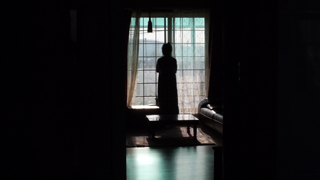 Radiance
Radiance
Director: Shuhei Hatano
Japan / 2023 / 18 min
The other Japanese film, Shuhei Hatano’s Radiance, is a short diary-style record of a year with his family, with fragments of mundane daily life gradually forming a magical landscape.
The festival’s Perspectives Japan section highlights new perspectives of the country, deploying a variety of formats and approaches. The five films in the program include at least one must-see for history buffs: Minoru Inoue’s Men with Movie Cameras—Shooting the Great Kanto Earthquake. This year marks the 100th anniversary of the 1923 quake, which killed some 100,000 and leveled much of Tokyo and Yokohama. Despite the inherent dangers of filming amidst the ongoing fires, three cameraman captured footage that has been remastered and edited together, posing questions about the meaning of recorded images that “convey the thoughts and feelings of the filmmakers across generations.”
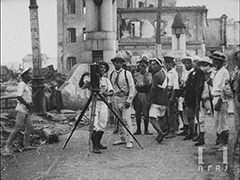
Men with Movie Cameras
Director: Minoru Inoue
Japan / 2022 / 81 min
©Number 9 Films Living Limited
.jpg) Noda Shinkichi (Center)
Noda Shinkichi (Center)
from Forgotten Land: Record of Life Series II
Director:Shinkichi Noda
Japan / 1958 / 30 min
Courtesy of National Film Archive of Japan
YIDFF has pulled out all the stops on their Noda Shinkichi Retrospective: A Festival of Things and Life, marking the 30th anniversary of the death of the famed documentarist. Noda (1913–1993) had joined P.C.L., the predecessor of Toho, in 1937 and after WWII, took part in the labor disputes at Toho. After going freelance, he devoted himself to making a series of documentaries about “things and life” covering an enormous range of subjects. Highlights include his 1941 Renovating Farm Houses, the visual poem A Town Not Yet Seen (1963), Country Life under Snow (1956) and the folk-culture film Snow as Flowers: Niino’s Snow Festival (1980).
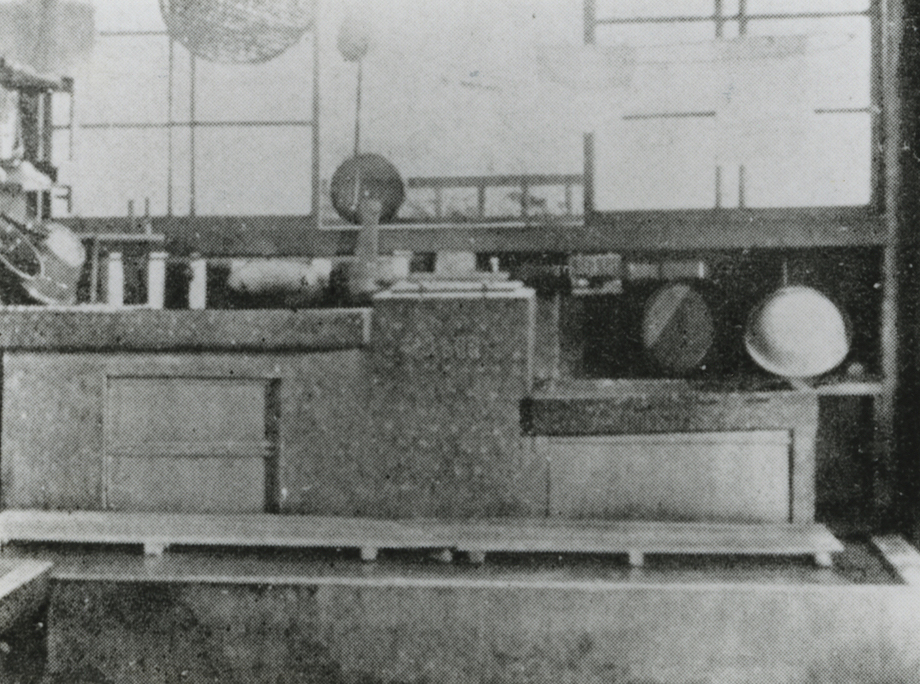
Renovating Farm Houses
Director: Shinkichi Noda
Japan / 1941 / 20 min (Postwar version)
Image Courtesy of National Film Archive of Japan
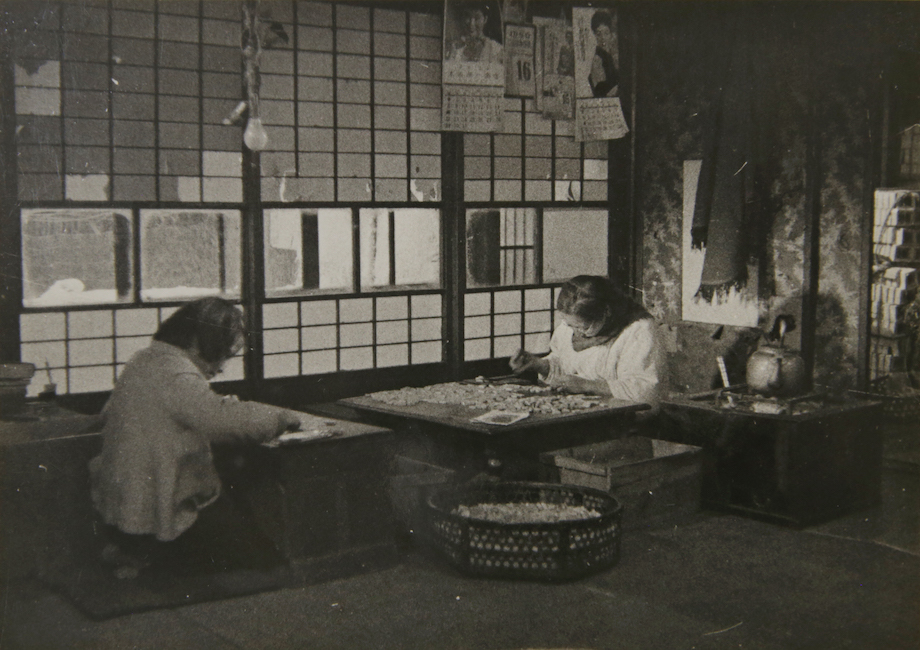 Country Life Under Snow
Country Life Under Snow
Director: Shinkichi Noda
Japan / 1956 / 32 min
Image Courtesy of National Film Archive of Japan
The Cinema with Us section focuses on work that continues to grow out of the 3/11 triple disaster, asking key questions about the role that documentary can play in the “recovery” process. It features work by foreign as well as Japanese filmmakers.
Finally, you might want to check out the special program based on the theme “View People View Cities,” with eight titles selected from an open call for films made in/by filmmakers from the 20 member cities of the UNESCO Creative Cities Network in the Field of Film, of which Yamagata is one.
One work, a collaborative project between Yamagata and Bradford, England, is Louisa Rose Mackleston’s short film The Power of Film Against the Landscape—From Yamagata to Bradford, which will have its premiere at the festival. It will be screened with four “Yamagata Renaissance” films about the city and its traditional culture.
Theaters for YIDFF
All photos except mentioned: ©️Yamagata International Documentary Film Festival
Please be sure to check with the theater before going.

